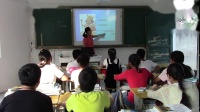視頻簡(jiǎn)介:

視頻標(biāo)簽:An old man,tried to,move the mou
所屬欄目:初中英語優(yōu)質(zhì)課視頻
視頻課題:人教新目標(biāo)英語八年級(jí)下冊(cè)Unit 6 An old man tried to move the mountains Section B 1a—1d巢湖
教學(xué)設(shè)計(jì)、課堂實(shí)錄及教案:人教新目標(biāo)英語八年級(jí)下冊(cè)Unit 6 An old man tried to move the mountains Section B 1a—1d巢湖市秀芙初級(jí)中學(xué)
教學(xué)目標(biāo)
1. Master the new words, some phrases and some useful expressions.
New words: gold, emperor, underwear, silk, stupid, cheat
Some useful expressions: once upon a time, an emperor who loved clothes, want to do sth., try to do sth. make special clothes, keep
everything for oneself, make…for…walk through the city, cheat somebody…
2. Be able to retell the story in your own words according to some pictures.
3. Use the simple tense to fill in the blanks.
4. Develop the cooperative and communicative skills in a group.
5. The more you read, the better you’ll learn.
6. Educate students to be honest. Honesty is gold.
2學(xué)情分析
The students of Grade Nine are very interested in English. They show great interest in this activity in a group. They are very active in class.
Most students can remember the English words quickly and dialogs well, but a few of them are weak in reciting words and some sentences,
especially several boys. They find it difficult to remember English words and articles. On the one hand, they want to improve English, but they
can’t put effort into their learning English. On the other hand, they still listen to the teachers carefully in class though they can’t catch what the
teacher says clearly. What’s more, they can’t spend enough time in learning English. Laziness is their main enemy. Let the students know the
importance of learning English and introduce some good advice about learning strategies. It’s also necessary for the students to learn some
good learning ways. Good students help those who don’t well in English after class. Cooperative learning is also quite helpful. To cultivate the
students’ autonomous learning ability is very important and useful. The teacher tries to guide and encourage students to improve learning
English efficiency. Both the teachers and students work hard to make great progress in learning English.
3重點(diǎn)難點(diǎn)
1. Teaching key points: Master the key words and some useful expressions. Catch the meaning of the listening material.
2. Teaching difficult points: Retell the story named The Emperor’s New Clothes. Fill in the blanks with the correct forms of the words given.
4教學(xué)過程
4.1第一學(xué)時(shí)
4.1.1教學(xué)活動(dòng)
活動(dòng)1【導(dǎo)入】Warm-up
Ask students some questions about everyday English and have a free talk simply.
For example:
---What day is it today?---It’s Tuesday.
---Is everyone here? ---Yes, everyone is here./No, somebody isn’t here.
---What’s the weather like today?---It’s sunny and hot/cloudy/rainy/…
---How many students are there in your classroom?---There are …
活動(dòng)2【導(dǎo)入】Lead-in
1. Show the teaching goals on the screen and let students know them briefly.
2. Then show some covers of the stories and ask students if they like stories.
? The teacher gives the reasons why she likes the stories and then let one student say the reasons why she/he likes stories.
活動(dòng)3【講授】Presentation
Show the pictures and teach the new words “gold” and “silk”, then teach other new words in some proper situations. These words are emperor, underwear, stupid, nobody and cheat. Read them many times until students can remember them well.
Then invite some students to pronounce the new words to correct their pronunciation and intonation. After that, put up the word cards on the blackboard to
read them over and over again. Then check the students’ memory. When the teacher says them in Chinese, let one student say them in
English quickly.
Ask the students to look at the pictures first and find where these letters are. Then match the words with the letters in the pictures in 1C. Give them one minute to do this work. Later, check the answers.
活動(dòng)4【練習(xí)】Practice
First, lead students to have a quick look at the instructions to know what to do and how to do them.
Show the pictures on the screen, guide the students to say what they can see in the pictures and what the story is about. Encourage
students to speak as much as they can.
After that, play the recording twice for them to listen. The first time, they need to listen carefully and number the pictures. The second
time, they have to fill in the blanks as they hear.
Play one more time for them to check the answers.
活動(dòng)5【活動(dòng)】Groupwork
Divide the students into three groups and each group has five pictures. Students retell the story called The Emperor’s New Clothes
according to the pictures. If necessary, the teacher can give them help as much as possible.
Invite some volunteers to retell the story. Call attention to the simple past tense.
Finally, choose a best work as the sample. Lead students to read it.
活動(dòng)6【練習(xí)】Extention
Go through the passage about this story and fill in the blanks with the correct forms of the words in brackets.
Then check the answers together. Pay attention to the simple past tense.
Finally, read the passage together. Guide the student to realize the importance of honesty. Tell students not to be dishonest. Be an
honest person. Remember the proverb “Honesty is gold.”
活動(dòng)7【作業(yè)】Summary and homework
Summary:
In this class, we mainly did some listening and speaking drills to check our learning efficiency. The practice helped students improve their
listening and speaking skills. Students could retell the story in their own words with the simple past tense. By working in a group
cooperatively, students can improve their spoken English and develop their cooperative awareness. From the story, let the students
know the importance of honesty.
?Homework:
1. Retell the story called The Emperor’s New Clothes in your own words.
2. Copy the important phrases of the story in the exercise books five times each.
3. Preview the next period.
視頻來源:優(yōu)質(zhì)課網(wǎng) www.jixiangsibao.com
| -----更多視頻請(qǐng)?jiān)诒卷撁骓敳克阉鳈谳斎搿癆n old man,tried to,move the mou”其中的單個(gè)詞或詞組,搜索以字?jǐn)?shù)為3-6之間的關(guān)鍵詞為宜,切記!注意不要輸入“科目或年級(jí)等文字”。本視頻標(biāo)題為“人教新目標(biāo)英語八年級(jí)下冊(cè)Unit 6 An old man tried to move the mountains Section B 1a—1d巢湖”,所屬分類為“初中英語優(yōu)質(zhì)課視頻”,如果喜歡或者認(rèn)為本視頻“人教新目標(biāo)英語八年級(jí)下冊(cè)Unit 6 An old man tried to move the mountains Section B 1a—1d巢湖”很給力,您可以一鍵點(diǎn)擊視頻下方的百度分享按鈕,以分享給更多的人觀看。優(yōu)質(zhì)課網(wǎng) 的成長(zhǎng)和發(fā)展,離不開您的支持,感謝您的關(guān)注和支持!有問題請(qǐng)【點(diǎn)此聯(lián)系客服QQ:983228566】 ----- |
